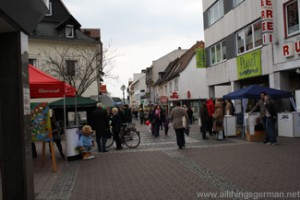Am Mittwochabend fand im großen Sitzungssaal des Oberurseler Rathauses die Verleihung des Ursella-Preises der CDU Oberursel statt.
Zum Anfang des Abends gab es einen Sektempfang und Musik von der Gruppe Toms & Jerries. Um halb acht begrüßte CDU-Vorsitzender Martin Bollinger die ca. 100 Gäste. Zu den Gästen gehörten Vertreter vieler Oberurseler Vereine sowie von anderen Parteien. Dass diese den Brauchtum pflegen, sich gegenseitig bei solchen Veranstaltungen zu besuchen, zeigt “dass Demokratie bei uns in Oberursel noch intakt ist”, kommentierte Bollinger. Auch der Künstler Hendoc, der den Preis erschaffen hat, war anwesend.
Martin Bollinger begrüßte ebenfalls Michael Reuter, den er als, “Motor hinter dem Preis”, bezeichnete. Auch einige ehemalige Gewinnerinnen und Gewinner waren im Publikum.
Der Preis zeichnet Menschen aus, die sich über das normale Ehrenamt hinaus für die Stadt engagieren. “Oberursel lebt von Menschen mit Leidenschaft für die Stadt. Der Preis ist ein Zeichen der Anerkennung”, so Bollinger. “Oberursel ist für uns Heimat”, sagte er und fügte hinzu: “deswegen gehen diese Menschen die extra Meile, um sie liebenswürdiger zu machen.”
Michael Reuter und Stadtverordnetenvorsteher Lothar Köhler enthüllten nun den Ursella-Preis und somit den bereits eingravierten Namen des Gewinners: Peter Schüßler, aka “Die Schüssel”. Der Preis wurde aus Holz einer Oberstedter Eiche aus dem Jahr 1640 erschaffen und steht sonst im historischen Rathaus. Peter Schüssler erkannte beim Empfang des Preises, dass einige Menschen im Publikum waren, die noch nie bei seinen Auftritten gewesen waren. “Ich werde den Preis in Ehren halten”, sagte er.


In seinem Laudatio erzählte Thomas Studanski vom Alt-Oberursler Brauhaus “Schüssel’s” Werdegang.
[Read more…] With local elections taking place in Oberursel tomorrow, amongst other things for the town parliament (Stadtparlament), I decided to take a trip into the town centre this morning and see what the political parties had to say for themselves.
With local elections taking place in Oberursel tomorrow, amongst other things for the town parliament (Stadtparlament), I decided to take a trip into the town centre this morning and see what the political parties had to say for themselves.